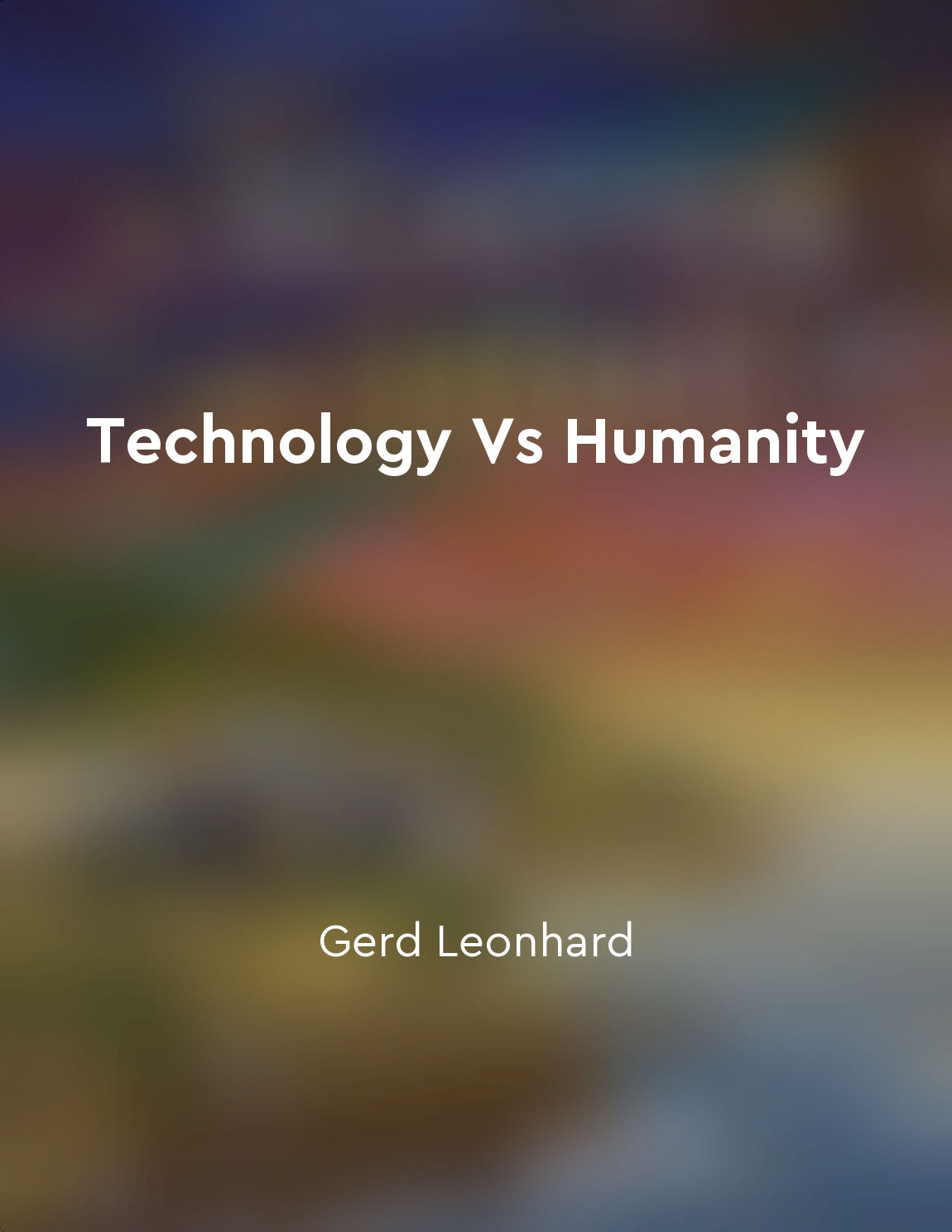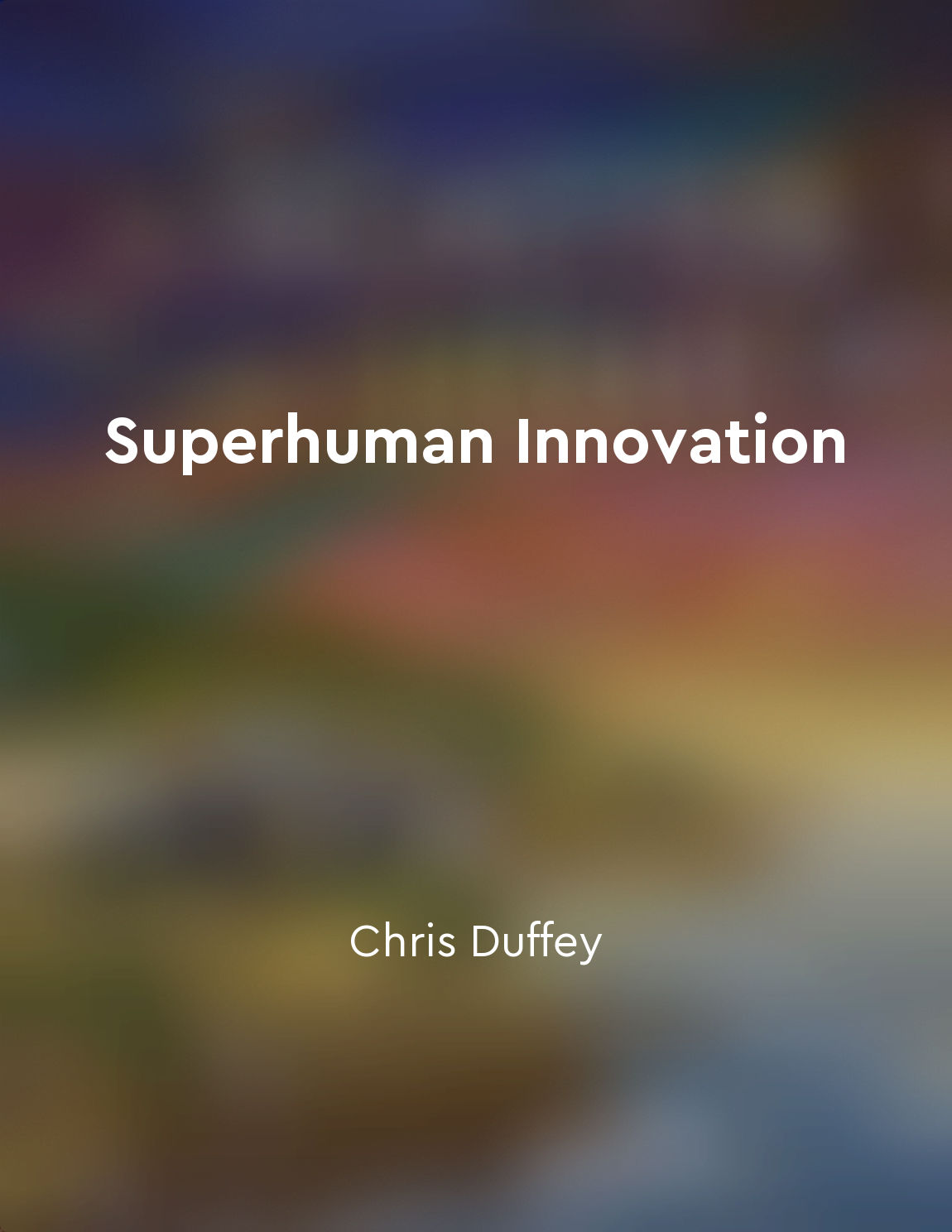The ethical implications of AIgenerated art from "summary" of The Creativity Code by Marcus Du Sautoy
As AI becomes increasingly sophisticated in generating art, questions surrounding ethics inevitably arise. One of the key concerns is the issue of authorship and ownership. When an AI system creates a piece of art, who should be credited as the artist? Should it be the programmer who wrote the algorithm, the AI itself, or a combination of both? This blurring of boundaries between human and machine creativity challenges our traditional notions of art and raises important questions about intellectual property rights. Another ethical implication of AI-generated art is the potential for plagiarism and copyright infringement. As AI systems are capable of analyzing and imitating existing artworks, there is a risk that they could produce derivative works that infringe upon the rights of original creators. This raises concerns about the need for regulation and oversight in the field of AI-generated art to protect the intellectual property of artists. Furthermore, there is a moral dimension to consider in the creation of AI-generated art. Can machines truly understand the cultural, historical, and emotional significance of art in the same way that humans do? Without this understanding, AI-generated art runs the risk of being devoid of meaning and context, potentially leading to the commodification of art and the loss of its intrinsic value. The democratization of art through AI also raises ethical questions about access and representation. While AI has the potential to make art more accessible to a wider audience, there is a risk that it could perpetuate existing inequalities in the art world. If AI-generated art becomes dominant, how will this impact the diversity of voices and perspectives in the art community? Will marginalized artists be further marginalized in a world where creativity is increasingly driven by algorithms? In navigating the ethical implications of AI-generated art, it is essential to consider the broader societal implications of this technology. As AI continues to shape our world in profound ways, it is crucial to approach the development and use of AI-generated art with a critical and ethical lens. Only by engaging in thoughtful discourse and debate can we ensure that AI serves as a tool for creativity and innovation, rather than a threat to the integrity and values of art.Similar Posts
Trust is a critical element in humanmachine interactions
Trust is a critical element in human-machine interactions. In today's world, where machines are increasingly taking on complex ...
Overcome fear
Fear is a fundamental emotion that has been a crucial part of human survival for thousands of years. It has helped our ancestor...

Embrace technology with caution and awareness
As we hurtle ever faster into a future dominated by technology, it is crucial that we proceed with caution and awareness. The r...
AI has the potential to increase productivity
AI's ability to automate routine tasks and streamline processes has the potential to significantly boost productivity in variou...

Agility is crucial in a fastpaced world
Agility is crucial in a fast-paced world. This concept is more relevant now than ever before. The pace of change in today's wor...
Automation can enhance human capabilities
One of the central ideas put forward in Automation and Utopia is that the development and deployment of automation technologies...
Intelligent machines are changing the way we live and work
The rise of intelligent machines has fundamentally transformed the way we go about our daily lives and conduct business. These ...
The potential of AI is limitless
The idea that the potential of artificial intelligence knows no bounds is both exciting and daunting. It is a notion that speak...
Experts are working to ensure AI remains ethical and safe
In the rapidly evolving world of artificial intelligence (AI), the need for ethics and safety measures is becoming increasingly...
The impacts of AI on privacy and security are significant
AI has undoubtedly brought about numerous advancements and benefits in various aspects of society. However, these advancements ...
